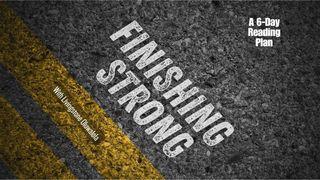That Makes Sense: A Gentle Reflection on the Origins of Addiction, How to Understand It, and How to Offer Yourself Graceਨਮੂਨਾ

You made it to the final day of this plan! Congratulations - you should feel proud of yourself for continuing to stay curious about the ways God designed you. Here’s a thought for today as we close our time together: Imagine if you told your addiction, “Of course you’ve been doing this. Of course this felt like the only way. That makes so much sense, given what you’ve lived through.”
Notice how loving that statement feels. Does it remind you of the character of anyone? 🙏
The truth is, our bodies are meaning-making systems. And when overwhelming pain happens in the absence of unconditional love, our nervous systems often draw the wrong conclusions: I’m too much. I’m not enough. I’m unlovable. I’ll never change.
These beliefs feel true because they were formed in real experiences of loneliness, shame, or harm. Addiction often steps in to protect us from those beliefs—until it’s safe enough to stop believing them.
In Internal Family Systems Therapy (IFS), we don’t shame or silence the part that uses addiction—we get curious about what it’s protecting. We follow it, gently, to the deeper wound it’s been carrying. And in the safety of loving connection—with God, with your therapist, with your own Self—that wound can finally be unburdened.
That’s what Jesus does too. He meets us right at the place we’re hiding. Not with criticism, but with compassion. Not to shame, but to restore. His presence is what allows those burdens to lift.
We don’t have to push or strive or force healing. We pause. We listen. We allow God’s love to speak to the parts of us that have been carrying pain alone for far too long.
Take a moment to rewatch the film on addiction, Wrangled. What does it stir in you now?
Has anything softened since day one? Can you feel the difference between the part that has carried the burden and the deeper you who’s watching it now with love?
Instead of asking this part to go away or quiet down, you might gently ask:
“What has this part been trying to protect?”
“How has it helped me survive?”
“How might it begin to transform, now that I’m safe in the presence of Jesus?”
This isn’t about pretending the struggle doesn’t exist. It’s about coming home to yourself. Coming home to the truth of who you are in Christ.
We’re not casting out a part of ourselves; we’re welcoming it into healing. We’re saying: You don’t have to carry this alone anymore.
You are not your addiction.
You are a beloved child of God.
You are seen. You are safe.
And you are being made new.
We hope you enjoyed this Bible Plan. If you’re curious about more from Wonderhunt, you can visit wonderhunt.co for more. You can also view the entire Rodeo film collection here.
Reflection: See if you can notice the part of you that still feels afraid. You don’t need to fix it…just be with it. Let it know you’re here now. Let it feel the warmth of your presence… and God's.
Consider these gentle questions:
What has this part of me—through addiction—been trying to protect?
What belief has it carried for a long time?
What might shift if that part felt safe, seen, and held in the love of Jesus?
Let whatever comes arise without judgment. Just witness it with compassion.
When you’re finished, pray the prayer below.
Prayer: Jesus, thank you for never turning away from me. For embracing the parts of me that hurt. Help me welcome even the parts I struggle with, including the one that uses addiction for comfort. Help me to understand it, not condemn it. Show me how You see it. Help me let this part know it’s not alone anymore. Thank You for protecting me, for staying with me, and for making me new…one loving breath at a time. Amen.
The content represented here is designed to spark reflection, conversation, and spiritual insight. It is not a substitute for professional mental health care.
If you or someone you love is experiencing emotional distress, please seek support from a licensed mental health professional. Faith and mental health can work hand in hand—and healing is possible.
In Crisis?
- Call or text 988 to reach the 988 Suicide & Crisis Lifeline — 24/7, free, and confidential.
- Or visit 988lifeline.org for live chat support and resources.
Looking for a Faith-Aware Therapist?
- To find a Christian therapist trained in Internal Family Systems (IFS)—a gentle, effective approach to healing anxiety, shame, and addiction—visit:
- jennariemersma.com/find-christian-ifs-therapist
- https://www.juliehoneycutt.com/storage/app/media/national-christian-ifs-directory.pdf
More Therapist Directories:
- PsychologyToday.com: Search for licensed professionals in your area. Filter for Christian therapists.
- OpenPathCollective.org: Affordable options for quality care. Filter for Christian therapists.
- ChristianCounseling.com: A network of faith-based providers.
Please don’t hesitate to reach out for the support you need. You are not alone.
ਪਵਿੱਤਰ ਸ਼ਾਸਤਰ
About this Plan

What if your addiction wasn’t your enemy, but a part of you trying to protect a deeper wound? This 3-day plan offers a compassionate, biblical approach to understanding addiction, and invites you to meet your struggle with grace while discovering the transforming love of Jesus.
More
Related Plans

The Mission | the Unfolding Story of God's Redemptive Purpose (Family Devotional)

The Mission: Every Nation Prayer & Fasting

Healing the Soul From Emotional Ills

Refresh Your Soul - Whole Bible in 2 Years (1 of 8)

Advent

Finishing Strong

Refresh Your Soul - Whole Bible in 2 Years (2 of 8)

God vs Goliath: The Battle Before the Battle

Light Has Come
